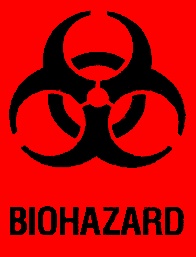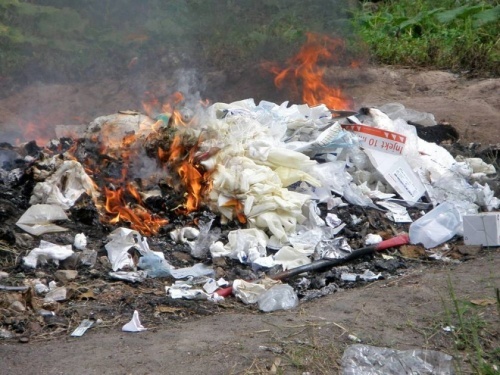

Jeopardizing the health of staff, patients, disposal workers and anyone else coming into contact with the often hazardous materials discarded by hospitals and other health-care sites, medical waste poses greater worldwide risks. (From UN News Centre Sources)
Calin Georgescu, the UN Special Rapporteur on human rights and toxic waste, issued a report in which he warned that the world is not paying enough attention to the problems caused by medical waste. “Some 20 to 25 per cent of the total waste generated by health-care establishments is regarded as hazardous and may create a variety of health and environmental risks if not managed and disposed of in an appropriate manner.” Medical waste can include a wide range of hazardous materials, such as infectious waste, anatomical and pathological waste, obsolete or expired chemical products and pharmaceuticals, radioactive materials and so-called “sharps,” medical instruments or devices that are no longer used.
Developed & Developing Countries:
The problem is rising particularly quickly in developing countries, where the amount of waste being generated is rising rapidly as health-care services in those States are expanded, and the technological and financial tools to ensure the waste is managed responsibly may not exist. “In health-care establishments where hazardous medical waste is incinerated, open burning and widespread deficiencies in the operation and management of small-scale medical waste incinerators result in incomplete waste destruction, inappropriate ash disposal and dioxins emissions, which can be even 40,000 times higher than emission limits set forth in international conventions,” Mr. Georgescu said.
“Sharp” Objects & Other Risks:
The Special Rapporteur noted that contaminated sharps attract the most attention, with needle-stick injuries exposing people to blood-borne pathogens such as the hepatitis B virus, the hepatitis C virus and the human immunodeficiency virus (HIV). “However, each type of hazardous medical waste presents hazards that jeopardize the enjoyment of human rights.”
Mr. Georgescu has made a series of recommendations to reduce the threat posed by medical waste, including proposing the development of an international legal regime to manage and dispose such waste and replacing incineration as a disposal method with more environmentally-friendly methods.
Related Articles - "Reducing Marine Pollution"
www.filmannex.com/posts/blog_show_post/reducing-marine-pollution-in-antarctic-new-measures-by-ambassador-mo/32809
"Oil Pollution Caspian Sea"
diplomaticallyincorrect.org/films/blog_post/oil-pollution-measures-caspian-sea-by-ambassador-mo/34064
By Ambassador Muhamed Sacirbey
Facebook – Become a fan at “Diplomatically Incorrect”
Twitter – Follow us at DiplomaticallyX
Ecology-Diplomat Channels:
diplomaticallyincorrect.org/c/ecology-diplomat



